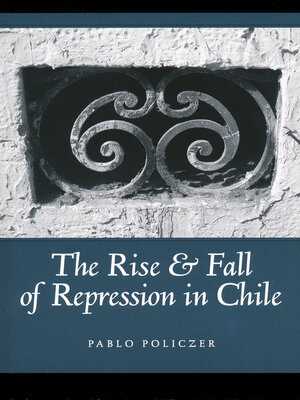Rise and Fall of Repression in Chile
ebook ∣ Kellogg Institute Series on Democracy and Development
By Pablo Policzer

Sign up to save your library
With an OverDrive account, you can save your favorite libraries for at-a-glance information about availability. Find out more about OverDrive accounts.
Find this title in Libby, the library reading app by OverDrive.



Search for a digital library with this title
Title found at these libraries:
| Loading... |
In The Rise and Fall of Repression in Chile, Pablo Policzer tackles the difficult task of analyzing how authoritarian regimes utilize coercion. Even in relatively open societies, coercive institutions such as the police and military tend to be secretive and mistrustful of efforts by outsiders to oversee their operations. In more closed societies, secrecy is the norm, making coercion that much more difficult to observe and understand.
Drawing on organization theory to develop a comparative typology of coercive regimes, Policzer analyzes the structures and mechanisms of coercion in general and then shifts his focus to the early part of the military dictatorship in Chile, which lasted from 1973 to 1990. Policzer's book sheds new light on a fundamental, yet little-examined, period during the Chilean dictatorship. Between 1977 and 1978, the governing junta in Chile quietly replaced the secret police organization known as the Dirección de Informaciones Nacional (DINA) with a different institution, the Central Nacional de Informaciones (CNI). Policzer provides the first systematic account of why the DINA was created in the first place, how it became the most powerful repressive institution in the country, and why it was suddenly replaced with a different organization, one that carried out repression in a markedly more restrained manner.
Policzer shows how the dictatorship's reorganization of its security forces intersected in surprising ways with efforts by human rights watchdogs to monitor and resist the regime's coercive practices. He concludes by comparing these struggles with how dictatorships in Argentina, East Germany, and South Africa organized coercion.






